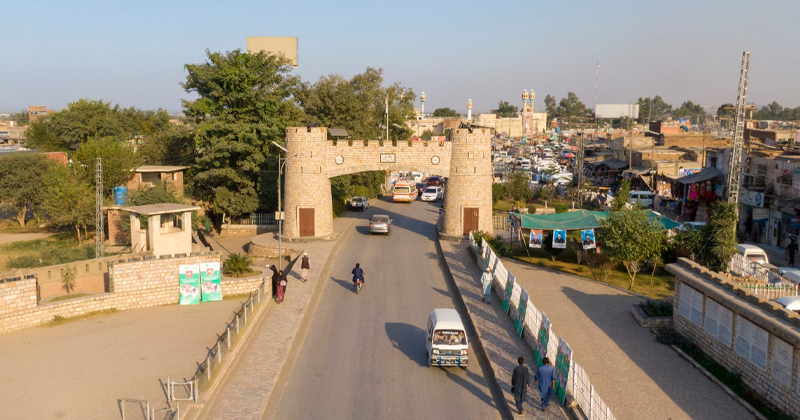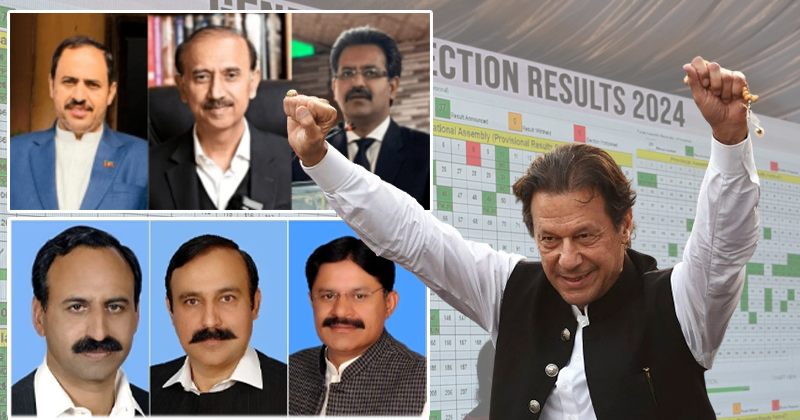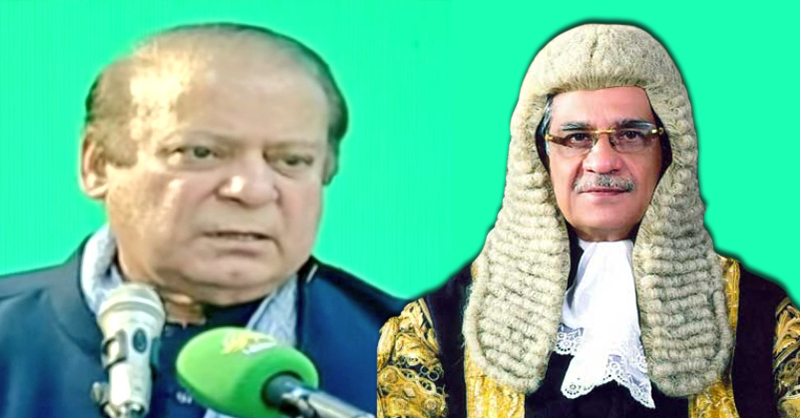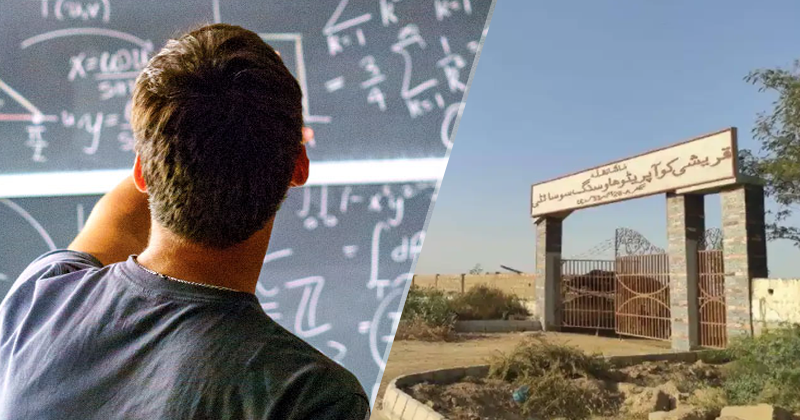We have been cheated by the British and India. Pakistan or muslim states should be formed in ALL parts of India where muslims are in heavy population, west to the east.
Read the Policy Paper below, adapted from brasstacks...... we need to reclaim bangladesh and spread over other parts of India as expressed on the map below. As it was written, so shall be done, inshaAllah, woh din door naheen.
Enjoy the reading
Policy Paper
Provincial Autonomy & Pakistan
By Shahzad Masood Roomi
2008 BrassTacks. All rights reserved.
This document is protected by copyright. No part of it may be reproduced, or transmitted, in any form or by any means, electronic or otherwise, without the written permission of BrassTacks.
The information in this document is furnished for informational use only. Great care has been taken to maintain the accuracy of the information contained in this document. However, neither BrassTacks nor the authors can be held responsible for errors or for any consequences arising from the use of the information contained herein.
[email protected] This e-mail address is being protected from spambots. You need JavaScript enabled to view it
Contents
Provincial Autonomy & Pakistan 4
Provincial Autonomy in Pakistan resolution 4
Provincial Autonomy in Pakistan 8
Provincial Autonomy Vs Provincial Rights 8
Provincial Autonomy in context of Governance & Management 9
Provincial Autonomy in context of National integrity 11
Proposals 13
Conclusion 15
Provincial Autonomy & Pakistan
Constitution in Pakistan is going through a major reshape under proposed 18th amendment and provincial autonomy is main focus of this process and a buzz word in Pakistan now a day. Provincial autonomy means a system of provincial government independent and free from any external influence or reliance. Complete provincial autonomy means absolute independence of provincial government.
Debate of Provincial autonomy in Pakistan stems from the fact that socio-economic progress and development is not uniform among all provinces. Campaigners of provincial autonomy illustrate this assorted social development standards among provinces due to disallowing provincial autonomy to the provinces. Pakistan has gone through the bitter experiment of provincial autonomy in 1971. It must be asked by the advocates of provincial autonomy how they can grantee that people will have their rights once provincial autonomy is given in presence of current corrupt political system.
Usually it is said that it is center that has uphold all the powers however truth is every political party put this allegation on its opponents when they are in government but as soon as they themselves come to power they keep on using same powers.
Does Pakistan really need provincial autonomy? Did Pakistan resolution promised something like provincial autonomy? What founding father said in this regard? What is difference between provincial rights and autonomy? What is required and what is real source of sense of deprivation in masses? Paper examines all these aspects of provincial autonomy and tries to find some answers.
Provincial Autonomy in Pakistan resolution
Strongest argument used by the advocates of provincial autonomy is Lahore Declaration of 23rd March 1940. This view point stems due to objective analysis of 1940 resolution. The argument of provincial autonomy leads to an idea that Muslim struggled for independence was to gain states with autonomous units in united British India hence autonomy must be given to provinces in Pakistan as well. One must keep Pre and Post WWII political landscape of British India, in sight, before making any judgment about 1940 resolution and its demands in context of provincial autonomy in an independent Pakistan. Below is excerpt of Pakistan resolution
"No constitutional plan would be workable or acceptable to the Muslims unless geographical contiguous units are demarcated into regions which should be so constituted with such territorial readjustments as may be necessary. That the areas in which the Muslims are numerically in majority as in the North-Western and Eastern zones of India should be grouped to constitute independent states in which the constituent units shall be autonomous and sovereign".
Last two lines of excerpt makes it clear that in 1940, One Pakistan was not the demand rather separate Muslim states were demanded; One in North West of India and other in Eastern zone. This resolution was adopted by Muslim League in 1941 as part of its constitution.

Different Muslim States envisaged in 1940 resolution
Often a fact is overlooked that there were reasons of using word autonomy in that resolution by the drafters as any word like independence or separation were strictly banned in any public procession by then Law known as Defense of India Rule, introduced after the start of Second World War. Furthermore, in 1940 resolution it was mentioned in its last paragraph that a mechanism for final assumption of powers will be formed afterwards in new Muslim states which was being demanded in that historic occasion of 23rd March 1940.
Real cause of calling for autonomy was to get justice in representation of Muslims in legislation elected bodies. British had curbed the real representation of Muslims in legislator elections in two majority provinces; Punjab and Bengal. In Punjab Muslims were 56% of population with a representation of just 42% and in Bengal Muslims were 45% of legislator bodies despite having a population share of 57%. So in these circumstances the demand of autonomy makes complete sense in United India where Muslims were deprived of their legitimate legislator representation but by looking at the intentions of British Raj soon it was realized by founding father that the demand of autonomy is no solution to this problem. This fact is evident from Quaids speech at conclusion of Muslim League Legislator convention held in April 1946 in Delhi;
There are those who say to us what is the good of yours talking of Pakistan when you cannot form ministries in your majority provinces? I say to them this is the very reason why we want to get rid of India Act of 1935 and establish Pakistan. Look at the spirit hoe they are forming Ministries in Mulsim majority provinces and hindering us from forming Ministries in our majority provinces.
Another historical fact often overlooked is Post 1940 political developments; Fact is by 1943 Quaid-e-Azim had demanded Divide and Quit, this makes it clear that demands of autonomy under 1940 resolution had very much reallocated towards complete independence and sovereignty by then and this fact becomes more evident after 1945 elections when Quaid-e-Azim called for Direct Action if Indian Muslims not allowed to have their own independent state; Pakistan.
To make the shift in demand more clear, All India Muslim League held its historic legislator convention in April 1946, Delhi, in which not only earlier resolutions of 1940 was amended but a new draft was also formulated making it clear that Muslims can not live with Hindus in one India and any oppression and force will be resisted in toughest possible way. This was first time Muslim league decided to struggle for one Muslim state (i.e Pakistan) in Indian subcontinent instead of previously envisioned two states (one on North West and other in Eastern zone). Speech of Quaid-i-Azim on this occasion makes it clear that autonomy was no more a demand of Muslims and also that Muslims were not interested in being part of any government in united India;
We cannot agree to a single constitution making body, because it will mean our signing our death-warrant and we cannot agree to consider any agreement unless Pakistan scheme is accepted as sine qua non.
Despite the fact that provincial autonomy was introduced in India Act of 1935 but when it comes to protection of rights, only solution Quaid envisaged was the creation of Pakistan not the provincial autonomy. Below is excerpt of his speech at the conclusion of Muslim League legislator convention;
If there is any safeguard known in the world for the minority provinces the most effective safeguard is creation of Pakistan. The present constitution also has safeguards but are paper safeguards any good?
But still supporters of complete provincial autonomy insist that Pakistan was dreamed as a loose federation of completely autonomous provinces/states or in other words it was deemed as a confederation rather than a federation (The demands of ANP and MQM in latter case) and what is more absurd that this demand of a confederation consisting completely autonomous provinces is often presented as if it was a demands of founding father of nation as well. To thwart this misconception for once and all below is excerpt of Quaids historical speech at Quetta municipality on 15th June 1948 (Just 87 days before his death) where he demolished any such thing like provincial autonomy. Below is part of his speech
While, however, one must love one's town and work for its welfare--indeed because of it--one must love better one's country and work more devotedly for it. Local attachments have their value but what is the value and strength of a "part" except within the "whole". Yet this is a truth people so easily seem to forget and begin to prize local, sectional or provincial interests above and regardless of the national interests. It naturally pains me to find the curse of provincialism holding sway over any section of Pakistan.
Pakistan must be get rid of this evil. It is relic of the old administration when you clung to provincial autonomy and local liberty of action to avoid control--which meant--British control. But with your own Central Government and its power, it is a folly to continue to think in the same terms, especially at a time when your State is so new and faces such tremendous problems internal and external. At this juncture any subordination of the larger interest of the State to the provincial or local or personal interest would be suicidal.
Not remaining limited to this, Quaid appealed the nation for an unshakable Pakistani nationalism;
Baluchistan is the land of brave independent people and to you, therefore, national freedom, honour, and strength should have a special meaning. These whisperings of mulki and non-Mulki are neither profitable for the land not worthy of it. We are now all Pakistanis--not Baluchis, Pathans, Sindhis, Bengalis, Punjabis and so on--and as Pakistanis we must feel behave and act, and we should be proud to be known as Pakistanis and nothing else. I ask you always to pause and consider before taking any step whether it is conditioned by your personal or local likes and dislikes or is determined by consideration of the good of the State.
Provincial Autonomy in Pakistan
Soon after death of Quaid-e-Azim, political parties started to deviate from Pakistani nationalism that was eagerly desired by Quaid. Rhetoric of provincial autonomy started once again and results were devastating for national security. Awami League started to demand complete autonomy under 1940 resolution. Ethno-linguistic cards were played by politicians in both East and West Pakistan. Though heinous political blunders were made by center but primarily it was demands of Awami League which resulted in separation of East Pakistan into Bangladesh. 6 points presented by Mujib ur Rehman were a clear declaration of secession of East Pakistan including demands like two currencies, two paramilitary forces, two separate accounts for foreign exchange etc. and all of these were based on pure ethno-linguistic politics to gain power. Never, in his whole political carrier, Mujib came up with a practical approach to uplift the socioeconomic situation in East Pakistan. He rather used problems like poverty, Linguistic polarization, Ethnic disparities in his favor to pursue his agenda of separation.
No political party ever demanded something like provincial autonomy after the debacle of 1971 until very recently when sudden uproar was seen in Pakistan for this cause in pretext of deprivation of provincial rights and local control over various natural resources.
Keeping military dictators aside, even elected governments tried to concede maximum powers in the center and this practice is still continue in form of 17th amendment in constitution.
Despite all these evidences an important fact remains that people of Pakistan demands the resolution of their problems with feelings of self governance. Sense of being deprived by center or a majority province must be nullified. Realization of provincial right is first step in that direction.
Provincial Autonomy Vs Provincial Rights
Nationalist and sub nationalist elements and small ethnic political parties are more vocal for complete provincial autonomy without realizing the fact that it is not possible in a federated state like Pakistan. In a federation there is always two layers of governance and administration; one at federal level and other at provincial level and there are always some enabling mechanisms in between to make both work. Federation, in its true sense is very different from what these elements and parities are demanding i.e. confederation.
Federation has no concept of imposing the will of center on province while at same time it is directly in contradiction of complete provincial autonomy. There must be a balance between provinces and center among all pertaining issues of governance and management and this is something we dont see in Pakistan. Every party after coming into power tried its level best to grab maximum powers to have absolute control. This pale political practice has given one and only one thing to the nation in return and that is absolute corruption with no accountability like it is said; Absolute power brings absolute corruption.
For decades rulers kept on making amendments in constitution to gain maximum power so that they can avoid any political opposition while ruling. This curse has not only ruined the concept of federating state by providing opportunity to provincial autonomy activists to spread misconceptions but has also brought national progress at stall while other competing nations are thriving for progress in the region i.e China, India and Bangladesh.
This must be understood by the politicians, intellectuals, academia and thinkers that in presence of current state of corruption at all levels in society and in absence of any reliable accountability mechanism more provincial autonomy will only lead to more crisis in Pakistan. Same corrupt political lot of decision makers have been attached to various kind of systems in Pakistan but due to massive corruption and plain ineptness in managing day to day state issues they have failed to come up with solutions of problems in and in between provinces. Instead of presenting solution of the major crisis in the country at this juncture of time so called nationalist politicians used the issues to move forward their agenda to have more powers by presenting provincial autonomy as a divine remedy for these crucial problems like water management, food shortages, energy, terrorism etc.
Provincial Autonomy in context of Governance & Management
Some analysts supporting provincial autonomy are of view that disparity between size of Punjab and other provinces is a major bone of contention in gaining inter provincial harmony so Punjab must be split between two to three smaller provinces so that reservation of other provinces can be overcome and also it will help in improving management and governance in newly formed smaller provinces. Another group has same kind of views about Baluchistan which, according to this group, must be divided into two to three smaller provinces so that social uplift in the Baluchistan can be put in top gear.
From a bird eye view these proposals seems to be very realistic and workable. In its pure management and governance incarnation this is what must be done as well but with these proposals there are some important questions which must be answered before;
1. How smaller provinces, consisting on Punjabi population will solve the problem of provincial disharmony and how they will promote ethnic cohesion in Pakistani state?
2. Dividing larger provinces into smaller one is not something equal to provincial autonomy. So how provincial autonomy will be granted with this divide of larger provinces into smaller one? Provincial autonomy is a subject directly between center and provinces regardless how big or small they are.
3. How diverse demography of various ethnic groups in Pakistan will be managed in this new setup? This arrangement can lead to a more dire situation as with this division Punjabis and Baluchis will have more than one provinces of their while Pukhtuns and Sindhis will have just one. This will destroy existing political and ethnic harmony and balance in national institutions like Senate (where equal representation of all provinces has been ensured). With this new arrangement rationale of Senate will come to an end as Punjabi or Baluchi will have more representation in Senate. Punjab already has most seats in National Assembly. How equal representation of all ethnic blocks will be ensured in Senate with split of larger provinces?
4. Like stated above, there is no grantee that corrupt elements within new provinces will work for social betterment.
So a quick look at issues raised above one can see that dividing larger provinces is not a solution to any challenge; neither governance nor provincial autonomy and ethnic harmony rather political situation will become more fragile in case of latter challenge if this approach is followed.
Current constitution of Pakistan has described the role of both central and provincial governments along with their mandates. There are 47 items in constitution (Concurrent List) enlisted in schedule IV of constitution which are shared among provinces and center.
This list was to be abolished within the ten years of formulation of constitution but it is still there. Presence of concurrent list is another source of contention between center and provinces. Constitution demands to eliminate concurrent list but has no clear directions in it about how to eliminate it. Not all the 47 items can be transferred under the provincial control but some of them can be but political consensus on various items is a big issue for any government.
Elimination of concurrent list is necessary but this must be done in a manner that ensures maximum possible provincial rights to provinces while remaining apart from complete provincial autonomy at same time. There is a big difference between two e.g. gaining more control over natural resources, collecting some of the taxes directly does not mean provincial autonomy these are rights of provinces that must be respected by center on the other hand provinces must also allow center to have departments like Education, language, central reserves and foreign exchange, law and order under its control along with more obvious areas like defense and foreign affairs.
A big issue here is lack of skilled work force in smaller provinces. Departments under provincial governments like police and health are merely functioning as per required so bringing more department in provinces from center will demand even more skilled work personnel and every province would eager to employ its own people in these provincial departments. Baluchistan and NWFP will have real difficulties in bridging demand of that kind of work force at all levels in provinces.
It is surprising that no party advocating provincial autonomy is talking about these issues as how provincial rights must be granted to the provinces so that people there can have some kind of sense of ownership.
Provincial Autonomy in context of National integrity
A bigger challenge that provincial autonomy can pose is something similar to what Awami Leagues demand of provincial autonomy did in 1970s i.e. an armed insurgency backed by hostile countries in the region like India. India played key role in secession of East Pakistan in guise of helping Awami League leadership in getting provincial autonomy and rights.
Current situation in Pakistan is not very different as nation and state both are fighting toughest war of their survival since last half decade now. Multiple insurgencies with varying strengths have erupted in the country particularly in Western and North Western provinces.
As Pakistan armed forces have crushed insurgency in Swat Malakand it have now become evident that these insurgencies are not just the fall out of Pakistans decision to support US in war on terror rather are part of 4th generation warfare tactics being employed against Pakistan by forces like CIA, Mossad and RAW.
Courtesy to some poor management of national security affairs by previous and current regimes foreign meddling into Pakistani political process has surpassed the red line since quite some time now. Pakistan has become kind of state where most serious decisions are being made by some foreign bureaucrats like Richard Holbrook. It was just recently when various national security institutes started asserting themselves to resist this foreign meddling into Pakistans critical issues but still a long way to go before Pakistani state can bring itself out of foreign influence completely.
It is really sad reality that in these testing times instead of backing Pakistani security establishment in securing vital national security interests in and around the region current political leadership has distanced itself from this war and is more in mode of appeasement of US by invoking debate of provincial autonomy at this critical time.
Current government has formed a committee of legislators to propose and amendments in the constitution so that it can be brought back to its original form of 1973 but there are some serious issues among the legislators on some subjects and provincial autonomy is one of them.
Pakistan can not afford to open this Pandora box right now. Provinces are very critical on some issues like water and energy. Punjab and Sindh are in head-on collision on water distribution and Chasma-Jehlum Link canal power project announced by government of Punjab recently.
Now in this situation it will become very difficult to keep things under control if provincial autonomy is assigned to provinces. Punjab can initiate KBD (Kala Bagh Dam) project which is vital for its energy and agriculture needs but Sindh will not remain salient on this and can call for international mediation or can deny access to port of Karachi to any Punjab based industry.
Things will not remain up to just that, hostile agencies waiting for opportunities would not spare a second to create mayhem by killing ethnic minorities in both provinces. Riots and clashes in streets would be unavoidable. In long term, this situation can damage national fabric beyond the point of any repair later on.
Issues like water crisis are not made up by provinces but are culmination of sheer mismanagement and treacherous policies at federal level on the issue by both current and previous governments. Provincial autonomy will not solve it rather would pose a more dire crisis which is already is in making as India has stopped flow of Pakistani rivers by building dams on these rivers by violating IWT of 1960.
History has taught a very tough lesson to Pakistani nation that provincial autonomy is a tool of propaganda warfare used by Indian successfully throughout 1960s and Pakistan had to pay price in 1971. Situation is once again similar Pakistani nation is under attack by Indian and Western media war who are using provincial autonomy, objective analysis and exaggerated facts as their weapons in this media war. Pakistan needs to take some serious steps to combat evil of provincialism.
Proposals
There are few proposals to combat evil of provincialism.
1. Elimination of Corruption
Pakistan has only one way forward on subject of provincial autonomy and that is to follow what Quaid-i-Azim said in his above mentioned speech at Quetta. To seek solution below is another excerpt of same speech he made on 15 June 1948;
If each individual thus being scrutinizing himself and forces--for initially it will require a certain amount of force--upon himself the principal of honesty to others as well as to himself, regardless of fear or favor. I see a very bright future ahead. If individuals both officials and non-officials play their part thus and work in this spirit, the Government, the Nation and the State will immediately bear their stamp, and Pakistan will emerge triumphantly as one of the greatest nations of the world.
It is evident that Quaid called for pure Islamic concept of self accountability so that no individual can be allured by any kind corruption. It is corruption at different levels that has put Pakistan into current state of affairs. As said by Quaid at the end of Muslim League legislator convention;
We have lost the fullness of our noble character. And what is charcter?- Highest sense of honour and highest sense of integrity, conviction, incorruptibility , readiness at any time to efface oneself for the collective good of the nation. (10 April 1946, Delhi)
Pakistan is facing same dilemma once again and only solution to get out of this is to curb corruption at every level at any cost. Had Pakistan a strong accountability system situation would have very different in every filed of life including provincial harmony. This is corruption that has put sheer sense of deprivation in masses through out the country and hence it must be eliminated.
2. Pakistani Nationalism
Like it was said by Quaid some 62 year ago, it is Pakistani nationalism that can keep Pakistan united in every kind of circumstances. Pakistan must protect its ideology jealously through.
Education and Language are two sensitive areas in this regard in any country and Pakistan is no exception. These areas will overlap between center and provinces. Neither provinces nor center can cope with these subjects alone. Center must provide the provinces with a broad framework of education at every level in such a manner that this framework must grantee the safeguard ideology of Pakistan throughout whole education system.
Also, center must do everything possible to safe Urdu in education system by adopting it as a medium of instructions in institutions and universities in higher education while provinces must do the same at their level.
Language and Education are two most important pillars against curse of provincialism and must be cultivated to nations interests.
Another major area in which government must work on war footing is media management in context of ideology of Pakistan so that propaganda of provincial autonomy can be thwarted. India and US are investing in Pakistani media to initiate media wars more aggressively and it is already evident that real target of this war is ideology of Pakistan that is in direct clash of provincial autonomy.
3. Provision of Provincial rights
Provision of provincial rights by solving issues like concurrent list is imperative but how this will be done is a subject where most of the brains in intellectual community of Pakistan must start pondering. Provinces in Pakistan are highly interdependent on each other and on center as well for various resources.
Pakistan needs some kind of enabling bodies that can work with center and province at same time on issues which are inter linked like security, higher education, revenue etc. Both center and province must follow the guidelines of the enabling bodies in each field.
4. Capacity Building
Many problems that smaller provinces are facing are direct result of lack of adequate man power and not having capacity to cope with challenges of modern age management issues.
Capacity building is as important as eliminating concurrent list and provinces must form specialized academies so that new managers and administrators can be trained to take responsibilities in new departments which would be handed over to provinces separately
Conclusion
Corruption and mismanagement over the decades have distorted the social fabric of the Pakistani nation. Not only nation but state also has suffered from lack of leadership due to corruption while corrupt kept on enjoying higher echelons of power poor kept on suffer in society. This has caused a deep sense of deprivation in masses particularly in smaller provinces.
Nationalist and sub nationalist elements in Pakistani political system, who otherwise know that they cannot form government in Islamabad, are now exploiting the situation to push their agenda of provincial autonomy ahead.
Pakistan has to overcome this corruption in its political system and must also get rid of elements that always seek more and more power while sitting in the center. On the other hand Pakistani nation must reject any ethnic or linguistic appeal by any political party or group in order to show Pakistani nationalism rather than provincialism.
Quaid-e-Azim gave principles of statesmanship on this issue as well like all other fields and it is time for Pakistani state to put these principles forward for nation building.
(END)
Read the Policy Paper below, adapted from brasstacks...... we need to reclaim bangladesh and spread over other parts of India as expressed on the map below. As it was written, so shall be done, inshaAllah, woh din door naheen.
Enjoy the reading
Policy Paper
Provincial Autonomy & Pakistan
By Shahzad Masood Roomi
2008 BrassTacks. All rights reserved.
This document is protected by copyright. No part of it may be reproduced, or transmitted, in any form or by any means, electronic or otherwise, without the written permission of BrassTacks.
The information in this document is furnished for informational use only. Great care has been taken to maintain the accuracy of the information contained in this document. However, neither BrassTacks nor the authors can be held responsible for errors or for any consequences arising from the use of the information contained herein.
[email protected] This e-mail address is being protected from spambots. You need JavaScript enabled to view it
Contents
Provincial Autonomy & Pakistan 4
Provincial Autonomy in Pakistan resolution 4
Provincial Autonomy in Pakistan 8
Provincial Autonomy Vs Provincial Rights 8
Provincial Autonomy in context of Governance & Management 9
Provincial Autonomy in context of National integrity 11
Proposals 13
Conclusion 15
Provincial Autonomy & Pakistan
Constitution in Pakistan is going through a major reshape under proposed 18th amendment and provincial autonomy is main focus of this process and a buzz word in Pakistan now a day. Provincial autonomy means a system of provincial government independent and free from any external influence or reliance. Complete provincial autonomy means absolute independence of provincial government.
Debate of Provincial autonomy in Pakistan stems from the fact that socio-economic progress and development is not uniform among all provinces. Campaigners of provincial autonomy illustrate this assorted social development standards among provinces due to disallowing provincial autonomy to the provinces. Pakistan has gone through the bitter experiment of provincial autonomy in 1971. It must be asked by the advocates of provincial autonomy how they can grantee that people will have their rights once provincial autonomy is given in presence of current corrupt political system.
Usually it is said that it is center that has uphold all the powers however truth is every political party put this allegation on its opponents when they are in government but as soon as they themselves come to power they keep on using same powers.
Does Pakistan really need provincial autonomy? Did Pakistan resolution promised something like provincial autonomy? What founding father said in this regard? What is difference between provincial rights and autonomy? What is required and what is real source of sense of deprivation in masses? Paper examines all these aspects of provincial autonomy and tries to find some answers.
Provincial Autonomy in Pakistan resolution
Strongest argument used by the advocates of provincial autonomy is Lahore Declaration of 23rd March 1940. This view point stems due to objective analysis of 1940 resolution. The argument of provincial autonomy leads to an idea that Muslim struggled for independence was to gain states with autonomous units in united British India hence autonomy must be given to provinces in Pakistan as well. One must keep Pre and Post WWII political landscape of British India, in sight, before making any judgment about 1940 resolution and its demands in context of provincial autonomy in an independent Pakistan. Below is excerpt of Pakistan resolution
"No constitutional plan would be workable or acceptable to the Muslims unless geographical contiguous units are demarcated into regions which should be so constituted with such territorial readjustments as may be necessary. That the areas in which the Muslims are numerically in majority as in the North-Western and Eastern zones of India should be grouped to constitute independent states in which the constituent units shall be autonomous and sovereign".
Last two lines of excerpt makes it clear that in 1940, One Pakistan was not the demand rather separate Muslim states were demanded; One in North West of India and other in Eastern zone. This resolution was adopted by Muslim League in 1941 as part of its constitution.

Different Muslim States envisaged in 1940 resolution
Often a fact is overlooked that there were reasons of using word autonomy in that resolution by the drafters as any word like independence or separation were strictly banned in any public procession by then Law known as Defense of India Rule, introduced after the start of Second World War. Furthermore, in 1940 resolution it was mentioned in its last paragraph that a mechanism for final assumption of powers will be formed afterwards in new Muslim states which was being demanded in that historic occasion of 23rd March 1940.
Real cause of calling for autonomy was to get justice in representation of Muslims in legislation elected bodies. British had curbed the real representation of Muslims in legislator elections in two majority provinces; Punjab and Bengal. In Punjab Muslims were 56% of population with a representation of just 42% and in Bengal Muslims were 45% of legislator bodies despite having a population share of 57%. So in these circumstances the demand of autonomy makes complete sense in United India where Muslims were deprived of their legitimate legislator representation but by looking at the intentions of British Raj soon it was realized by founding father that the demand of autonomy is no solution to this problem. This fact is evident from Quaids speech at conclusion of Muslim League Legislator convention held in April 1946 in Delhi;
There are those who say to us what is the good of yours talking of Pakistan when you cannot form ministries in your majority provinces? I say to them this is the very reason why we want to get rid of India Act of 1935 and establish Pakistan. Look at the spirit hoe they are forming Ministries in Mulsim majority provinces and hindering us from forming Ministries in our majority provinces.
Another historical fact often overlooked is Post 1940 political developments; Fact is by 1943 Quaid-e-Azim had demanded Divide and Quit, this makes it clear that demands of autonomy under 1940 resolution had very much reallocated towards complete independence and sovereignty by then and this fact becomes more evident after 1945 elections when Quaid-e-Azim called for Direct Action if Indian Muslims not allowed to have their own independent state; Pakistan.
To make the shift in demand more clear, All India Muslim League held its historic legislator convention in April 1946, Delhi, in which not only earlier resolutions of 1940 was amended but a new draft was also formulated making it clear that Muslims can not live with Hindus in one India and any oppression and force will be resisted in toughest possible way. This was first time Muslim league decided to struggle for one Muslim state (i.e Pakistan) in Indian subcontinent instead of previously envisioned two states (one on North West and other in Eastern zone). Speech of Quaid-i-Azim on this occasion makes it clear that autonomy was no more a demand of Muslims and also that Muslims were not interested in being part of any government in united India;
We cannot agree to a single constitution making body, because it will mean our signing our death-warrant and we cannot agree to consider any agreement unless Pakistan scheme is accepted as sine qua non.
Despite the fact that provincial autonomy was introduced in India Act of 1935 but when it comes to protection of rights, only solution Quaid envisaged was the creation of Pakistan not the provincial autonomy. Below is excerpt of his speech at the conclusion of Muslim League legislator convention;
If there is any safeguard known in the world for the minority provinces the most effective safeguard is creation of Pakistan. The present constitution also has safeguards but are paper safeguards any good?
But still supporters of complete provincial autonomy insist that Pakistan was dreamed as a loose federation of completely autonomous provinces/states or in other words it was deemed as a confederation rather than a federation (The demands of ANP and MQM in latter case) and what is more absurd that this demand of a confederation consisting completely autonomous provinces is often presented as if it was a demands of founding father of nation as well. To thwart this misconception for once and all below is excerpt of Quaids historical speech at Quetta municipality on 15th June 1948 (Just 87 days before his death) where he demolished any such thing like provincial autonomy. Below is part of his speech
While, however, one must love one's town and work for its welfare--indeed because of it--one must love better one's country and work more devotedly for it. Local attachments have their value but what is the value and strength of a "part" except within the "whole". Yet this is a truth people so easily seem to forget and begin to prize local, sectional or provincial interests above and regardless of the national interests. It naturally pains me to find the curse of provincialism holding sway over any section of Pakistan.
Pakistan must be get rid of this evil. It is relic of the old administration when you clung to provincial autonomy and local liberty of action to avoid control--which meant--British control. But with your own Central Government and its power, it is a folly to continue to think in the same terms, especially at a time when your State is so new and faces such tremendous problems internal and external. At this juncture any subordination of the larger interest of the State to the provincial or local or personal interest would be suicidal.
Not remaining limited to this, Quaid appealed the nation for an unshakable Pakistani nationalism;
Baluchistan is the land of brave independent people and to you, therefore, national freedom, honour, and strength should have a special meaning. These whisperings of mulki and non-Mulki are neither profitable for the land not worthy of it. We are now all Pakistanis--not Baluchis, Pathans, Sindhis, Bengalis, Punjabis and so on--and as Pakistanis we must feel behave and act, and we should be proud to be known as Pakistanis and nothing else. I ask you always to pause and consider before taking any step whether it is conditioned by your personal or local likes and dislikes or is determined by consideration of the good of the State.
Provincial Autonomy in Pakistan
Soon after death of Quaid-e-Azim, political parties started to deviate from Pakistani nationalism that was eagerly desired by Quaid. Rhetoric of provincial autonomy started once again and results were devastating for national security. Awami League started to demand complete autonomy under 1940 resolution. Ethno-linguistic cards were played by politicians in both East and West Pakistan. Though heinous political blunders were made by center but primarily it was demands of Awami League which resulted in separation of East Pakistan into Bangladesh. 6 points presented by Mujib ur Rehman were a clear declaration of secession of East Pakistan including demands like two currencies, two paramilitary forces, two separate accounts for foreign exchange etc. and all of these were based on pure ethno-linguistic politics to gain power. Never, in his whole political carrier, Mujib came up with a practical approach to uplift the socioeconomic situation in East Pakistan. He rather used problems like poverty, Linguistic polarization, Ethnic disparities in his favor to pursue his agenda of separation.
No political party ever demanded something like provincial autonomy after the debacle of 1971 until very recently when sudden uproar was seen in Pakistan for this cause in pretext of deprivation of provincial rights and local control over various natural resources.
Keeping military dictators aside, even elected governments tried to concede maximum powers in the center and this practice is still continue in form of 17th amendment in constitution.
Despite all these evidences an important fact remains that people of Pakistan demands the resolution of their problems with feelings of self governance. Sense of being deprived by center or a majority province must be nullified. Realization of provincial right is first step in that direction.
Provincial Autonomy Vs Provincial Rights
Nationalist and sub nationalist elements and small ethnic political parties are more vocal for complete provincial autonomy without realizing the fact that it is not possible in a federated state like Pakistan. In a federation there is always two layers of governance and administration; one at federal level and other at provincial level and there are always some enabling mechanisms in between to make both work. Federation, in its true sense is very different from what these elements and parities are demanding i.e. confederation.
Federation has no concept of imposing the will of center on province while at same time it is directly in contradiction of complete provincial autonomy. There must be a balance between provinces and center among all pertaining issues of governance and management and this is something we dont see in Pakistan. Every party after coming into power tried its level best to grab maximum powers to have absolute control. This pale political practice has given one and only one thing to the nation in return and that is absolute corruption with no accountability like it is said; Absolute power brings absolute corruption.
For decades rulers kept on making amendments in constitution to gain maximum power so that they can avoid any political opposition while ruling. This curse has not only ruined the concept of federating state by providing opportunity to provincial autonomy activists to spread misconceptions but has also brought national progress at stall while other competing nations are thriving for progress in the region i.e China, India and Bangladesh.
This must be understood by the politicians, intellectuals, academia and thinkers that in presence of current state of corruption at all levels in society and in absence of any reliable accountability mechanism more provincial autonomy will only lead to more crisis in Pakistan. Same corrupt political lot of decision makers have been attached to various kind of systems in Pakistan but due to massive corruption and plain ineptness in managing day to day state issues they have failed to come up with solutions of problems in and in between provinces. Instead of presenting solution of the major crisis in the country at this juncture of time so called nationalist politicians used the issues to move forward their agenda to have more powers by presenting provincial autonomy as a divine remedy for these crucial problems like water management, food shortages, energy, terrorism etc.
Provincial Autonomy in context of Governance & Management
Some analysts supporting provincial autonomy are of view that disparity between size of Punjab and other provinces is a major bone of contention in gaining inter provincial harmony so Punjab must be split between two to three smaller provinces so that reservation of other provinces can be overcome and also it will help in improving management and governance in newly formed smaller provinces. Another group has same kind of views about Baluchistan which, according to this group, must be divided into two to three smaller provinces so that social uplift in the Baluchistan can be put in top gear.
From a bird eye view these proposals seems to be very realistic and workable. In its pure management and governance incarnation this is what must be done as well but with these proposals there are some important questions which must be answered before;
1. How smaller provinces, consisting on Punjabi population will solve the problem of provincial disharmony and how they will promote ethnic cohesion in Pakistani state?
2. Dividing larger provinces into smaller one is not something equal to provincial autonomy. So how provincial autonomy will be granted with this divide of larger provinces into smaller one? Provincial autonomy is a subject directly between center and provinces regardless how big or small they are.
3. How diverse demography of various ethnic groups in Pakistan will be managed in this new setup? This arrangement can lead to a more dire situation as with this division Punjabis and Baluchis will have more than one provinces of their while Pukhtuns and Sindhis will have just one. This will destroy existing political and ethnic harmony and balance in national institutions like Senate (where equal representation of all provinces has been ensured). With this new arrangement rationale of Senate will come to an end as Punjabi or Baluchi will have more representation in Senate. Punjab already has most seats in National Assembly. How equal representation of all ethnic blocks will be ensured in Senate with split of larger provinces?
4. Like stated above, there is no grantee that corrupt elements within new provinces will work for social betterment.
So a quick look at issues raised above one can see that dividing larger provinces is not a solution to any challenge; neither governance nor provincial autonomy and ethnic harmony rather political situation will become more fragile in case of latter challenge if this approach is followed.
Current constitution of Pakistan has described the role of both central and provincial governments along with their mandates. There are 47 items in constitution (Concurrent List) enlisted in schedule IV of constitution which are shared among provinces and center.
This list was to be abolished within the ten years of formulation of constitution but it is still there. Presence of concurrent list is another source of contention between center and provinces. Constitution demands to eliminate concurrent list but has no clear directions in it about how to eliminate it. Not all the 47 items can be transferred under the provincial control but some of them can be but political consensus on various items is a big issue for any government.
Elimination of concurrent list is necessary but this must be done in a manner that ensures maximum possible provincial rights to provinces while remaining apart from complete provincial autonomy at same time. There is a big difference between two e.g. gaining more control over natural resources, collecting some of the taxes directly does not mean provincial autonomy these are rights of provinces that must be respected by center on the other hand provinces must also allow center to have departments like Education, language, central reserves and foreign exchange, law and order under its control along with more obvious areas like defense and foreign affairs.
A big issue here is lack of skilled work force in smaller provinces. Departments under provincial governments like police and health are merely functioning as per required so bringing more department in provinces from center will demand even more skilled work personnel and every province would eager to employ its own people in these provincial departments. Baluchistan and NWFP will have real difficulties in bridging demand of that kind of work force at all levels in provinces.
It is surprising that no party advocating provincial autonomy is talking about these issues as how provincial rights must be granted to the provinces so that people there can have some kind of sense of ownership.
Provincial Autonomy in context of National integrity
A bigger challenge that provincial autonomy can pose is something similar to what Awami Leagues demand of provincial autonomy did in 1970s i.e. an armed insurgency backed by hostile countries in the region like India. India played key role in secession of East Pakistan in guise of helping Awami League leadership in getting provincial autonomy and rights.
Current situation in Pakistan is not very different as nation and state both are fighting toughest war of their survival since last half decade now. Multiple insurgencies with varying strengths have erupted in the country particularly in Western and North Western provinces.
As Pakistan armed forces have crushed insurgency in Swat Malakand it have now become evident that these insurgencies are not just the fall out of Pakistans decision to support US in war on terror rather are part of 4th generation warfare tactics being employed against Pakistan by forces like CIA, Mossad and RAW.
Courtesy to some poor management of national security affairs by previous and current regimes foreign meddling into Pakistani political process has surpassed the red line since quite some time now. Pakistan has become kind of state where most serious decisions are being made by some foreign bureaucrats like Richard Holbrook. It was just recently when various national security institutes started asserting themselves to resist this foreign meddling into Pakistans critical issues but still a long way to go before Pakistani state can bring itself out of foreign influence completely.
It is really sad reality that in these testing times instead of backing Pakistani security establishment in securing vital national security interests in and around the region current political leadership has distanced itself from this war and is more in mode of appeasement of US by invoking debate of provincial autonomy at this critical time.
Current government has formed a committee of legislators to propose and amendments in the constitution so that it can be brought back to its original form of 1973 but there are some serious issues among the legislators on some subjects and provincial autonomy is one of them.
Pakistan can not afford to open this Pandora box right now. Provinces are very critical on some issues like water and energy. Punjab and Sindh are in head-on collision on water distribution and Chasma-Jehlum Link canal power project announced by government of Punjab recently.
Now in this situation it will become very difficult to keep things under control if provincial autonomy is assigned to provinces. Punjab can initiate KBD (Kala Bagh Dam) project which is vital for its energy and agriculture needs but Sindh will not remain salient on this and can call for international mediation or can deny access to port of Karachi to any Punjab based industry.
Things will not remain up to just that, hostile agencies waiting for opportunities would not spare a second to create mayhem by killing ethnic minorities in both provinces. Riots and clashes in streets would be unavoidable. In long term, this situation can damage national fabric beyond the point of any repair later on.
Issues like water crisis are not made up by provinces but are culmination of sheer mismanagement and treacherous policies at federal level on the issue by both current and previous governments. Provincial autonomy will not solve it rather would pose a more dire crisis which is already is in making as India has stopped flow of Pakistani rivers by building dams on these rivers by violating IWT of 1960.
History has taught a very tough lesson to Pakistani nation that provincial autonomy is a tool of propaganda warfare used by Indian successfully throughout 1960s and Pakistan had to pay price in 1971. Situation is once again similar Pakistani nation is under attack by Indian and Western media war who are using provincial autonomy, objective analysis and exaggerated facts as their weapons in this media war. Pakistan needs to take some serious steps to combat evil of provincialism.
Proposals
There are few proposals to combat evil of provincialism.
1. Elimination of Corruption
Pakistan has only one way forward on subject of provincial autonomy and that is to follow what Quaid-i-Azim said in his above mentioned speech at Quetta. To seek solution below is another excerpt of same speech he made on 15 June 1948;
If each individual thus being scrutinizing himself and forces--for initially it will require a certain amount of force--upon himself the principal of honesty to others as well as to himself, regardless of fear or favor. I see a very bright future ahead. If individuals both officials and non-officials play their part thus and work in this spirit, the Government, the Nation and the State will immediately bear their stamp, and Pakistan will emerge triumphantly as one of the greatest nations of the world.
It is evident that Quaid called for pure Islamic concept of self accountability so that no individual can be allured by any kind corruption. It is corruption at different levels that has put Pakistan into current state of affairs. As said by Quaid at the end of Muslim League legislator convention;
We have lost the fullness of our noble character. And what is charcter?- Highest sense of honour and highest sense of integrity, conviction, incorruptibility , readiness at any time to efface oneself for the collective good of the nation. (10 April 1946, Delhi)
Pakistan is facing same dilemma once again and only solution to get out of this is to curb corruption at every level at any cost. Had Pakistan a strong accountability system situation would have very different in every filed of life including provincial harmony. This is corruption that has put sheer sense of deprivation in masses through out the country and hence it must be eliminated.
2. Pakistani Nationalism
Like it was said by Quaid some 62 year ago, it is Pakistani nationalism that can keep Pakistan united in every kind of circumstances. Pakistan must protect its ideology jealously through.
Education and Language are two sensitive areas in this regard in any country and Pakistan is no exception. These areas will overlap between center and provinces. Neither provinces nor center can cope with these subjects alone. Center must provide the provinces with a broad framework of education at every level in such a manner that this framework must grantee the safeguard ideology of Pakistan throughout whole education system.
Also, center must do everything possible to safe Urdu in education system by adopting it as a medium of instructions in institutions and universities in higher education while provinces must do the same at their level.
Language and Education are two most important pillars against curse of provincialism and must be cultivated to nations interests.
Another major area in which government must work on war footing is media management in context of ideology of Pakistan so that propaganda of provincial autonomy can be thwarted. India and US are investing in Pakistani media to initiate media wars more aggressively and it is already evident that real target of this war is ideology of Pakistan that is in direct clash of provincial autonomy.
3. Provision of Provincial rights
Provision of provincial rights by solving issues like concurrent list is imperative but how this will be done is a subject where most of the brains in intellectual community of Pakistan must start pondering. Provinces in Pakistan are highly interdependent on each other and on center as well for various resources.
Pakistan needs some kind of enabling bodies that can work with center and province at same time on issues which are inter linked like security, higher education, revenue etc. Both center and province must follow the guidelines of the enabling bodies in each field.
4. Capacity Building
Many problems that smaller provinces are facing are direct result of lack of adequate man power and not having capacity to cope with challenges of modern age management issues.
Capacity building is as important as eliminating concurrent list and provinces must form specialized academies so that new managers and administrators can be trained to take responsibilities in new departments which would be handed over to provinces separately
Conclusion
Corruption and mismanagement over the decades have distorted the social fabric of the Pakistani nation. Not only nation but state also has suffered from lack of leadership due to corruption while corrupt kept on enjoying higher echelons of power poor kept on suffer in society. This has caused a deep sense of deprivation in masses particularly in smaller provinces.
Nationalist and sub nationalist elements in Pakistani political system, who otherwise know that they cannot form government in Islamabad, are now exploiting the situation to push their agenda of provincial autonomy ahead.
Pakistan has to overcome this corruption in its political system and must also get rid of elements that always seek more and more power while sitting in the center. On the other hand Pakistani nation must reject any ethnic or linguistic appeal by any political party or group in order to show Pakistani nationalism rather than provincialism.
Quaid-e-Azim gave principles of statesmanship on this issue as well like all other fields and it is time for Pakistani state to put these principles forward for nation building.
(END)



































